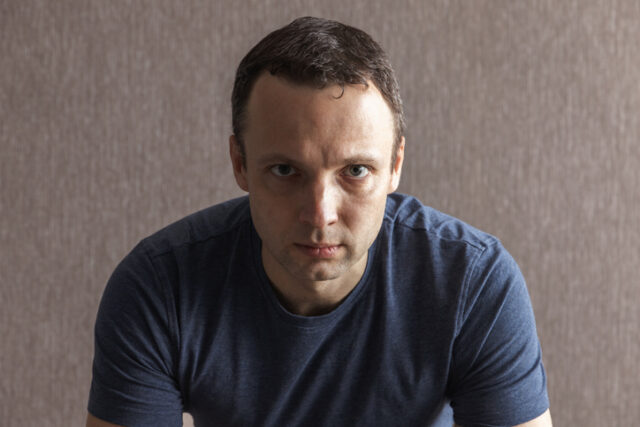Socialising is tough for a lot of people, but when you have any form of neurodivergence, it can feel downright impossible.

Of course, that’s not to say that all neurodivergent people are socially inept because that’s definitely not the case. However, people who have conditions such as ADHD, autism, or even dyspraxia or dyslexia might find making connections and maintaining them harder than the average person. Here’s why it can be such a struggle.
1. Social cues don’t always come naturally.

Reading between the lines, picking up on subtle body language, or catching unspoken hints can be challenging. Sometimes, even with the best intentions, these cues just don’t register. This can lead to misunderstandings that aren’t anyone’s fault but can still create uncomfortable moments. People who approach communication openly and are willing to clarify things can make a big difference in helping everyone feel on the same page.
2. Small talk feels uncomfortable.

For many neurodivergent people, small talk feels a bit pointless or even awkward. While some thrive on light, surface-level chat, they might prefer jumping into deeper or more meaningful topics. It’s not about avoiding interaction—it’s just that more substantial conversations feel like a better use of energy. Finding friends who appreciate that kind of genuine talk can make socialising a lot more rewarding and less draining.
3. Sensory sensitivities make socialising draining.

Busy environments full of loud sounds, bright lights, or big crowds can quickly become overwhelming. Social events that other people find fun may feel intense and exhausting, especially for those with sensory sensitivities. Knowing what kinds of settings feel comfortable helps reduce stress, and finding friends who understand this need for calmer spaces makes socialising a whole lot easier.
4. Routine disruptions cause stress.

Many neurodivergent people find comfort in routines, and unexpected changes can throw things off balance. Last-minute plans or spontaneous gatherings might seem fun to some, but for others, they can feel unsettling or overwhelming. Having a bit of notice before plans change or sticking to an agreed schedule can make social situations far more manageable and enjoyable.
5. They’re afraid of being misunderstood.

Past experiences of being misinterpreted or judged can make socialising feel risky. Neurodivergent people might worry that what they say will be taken the wrong way, or that their intentions will be misunderstood. Having friends who listen without judgment and try to understand them as they are can make a huge difference. Feeling accepted for who they are encourages a sense of safety in social situations.
6. Masking is exhausting.

Masking, or trying to fit in by suppressing certain natural behaviours, is incredibly tiring. Many neurodivergent people feel the need to mask to blend in socially, but it can lead to burnout. Friendships where they don’t feel pressured to mask are more fulfilling and sustainable, allowing them to show up as themselves without fear of judgment.
7. Social exhaustion sets in quickly.

For neurodivergent people, socialising can drain energy faster, often requiring significant downtime afterward to recover. While some might worry this makes them seem disinterested, it’s really about needing to recharge. Finding friends who understand that balance and don’t take the need for solitude personally helps keep social connections positive and enjoyable.
8. Anxiety makes reaching out hard.

The fear of rejection or coming across the “wrong way” can make it tough to initiate plans or reach out. Even if they want to connect, anxiety can hold them back, leading to a cycle of wanting to be social but feeling hesitant. Having friends who occasionally take the lead can ease this anxiety, making it easier to form lasting connections without the pressure of always making the first move.
9. Group dynamics feel confusing.

In group situations, where conversations overlap and social cues multiply, things can get chaotic. Figuring out when to join in or how to keep up with the flow isn’t always easy. Many neurodivergent people prefer one-on-one interactions, where they can engage without feeling overwhelmed. Friends who understand this preference for quieter interactions can make socialising more comfortable.
10. Their interests might be niche or intense.

Neurodivergent people often have specific, focused interests that can seem intense or “different” to everyone else’s. While these passions bring them joy, sharing them can sometimes lead to awkwardness or misunderstandings if other people don’t quite get it. Connecting with people who either share those interests or show genuine curiosity helps create natural, authentic friendships.
11. Rejection sensitivity is intense.

Rejection can feel especially painful, which makes the idea of putting themselves out there a little daunting. This sensitivity often leads to avoiding social situations to protect themselves from possible hurt. Building friendships with reliable, steady people who understand this sensitivity can create a safe space, making it easier for them to feel confident in their relationships.
12. They have different communication styles from most people.

Some neurodivergent people have unique communication styles—whether that means being very direct, needing extra detail, or interpreting things in a more literal way. These differences can sometimes lead to misunderstandings, even when everyone has good intentions. Friends who are open to embracing and adapting to different styles make interactions smoother and more enjoyable for everyone involved.
13. Trust takes time to build.

Past experiences or misunderstandings can make neurodivergent people cautious about forming new connections. They may take longer to open up and trust, moving at a slower pace in friendships. Friends who respect these boundaries and give them the time they need help create a foundation for strong, lasting connections built on patience and understanding.
14. They worry about saying the “wrong” thing.

Concerns about accidentally offending someone or saying something that comes across poorly can create a lot of second-guessing. This constant self-monitoring can make conversations feel more tense than they should. Friends who don’t jump to conclusions or hold minor slips against them make socialising feel safer, helping ease that worry over time.
15. Social rules sometimes feel unclear.

For some neurodivergent people, unspoken social rules and expectations are like a foreign language. Navigating these hidden norms can be confusing, making social interactions feel a bit like guesswork. Friendships where both sides communicate openly about expectations and boundaries help clear up this uncertainty, making it easier for everyone to feel comfortable and understood.




